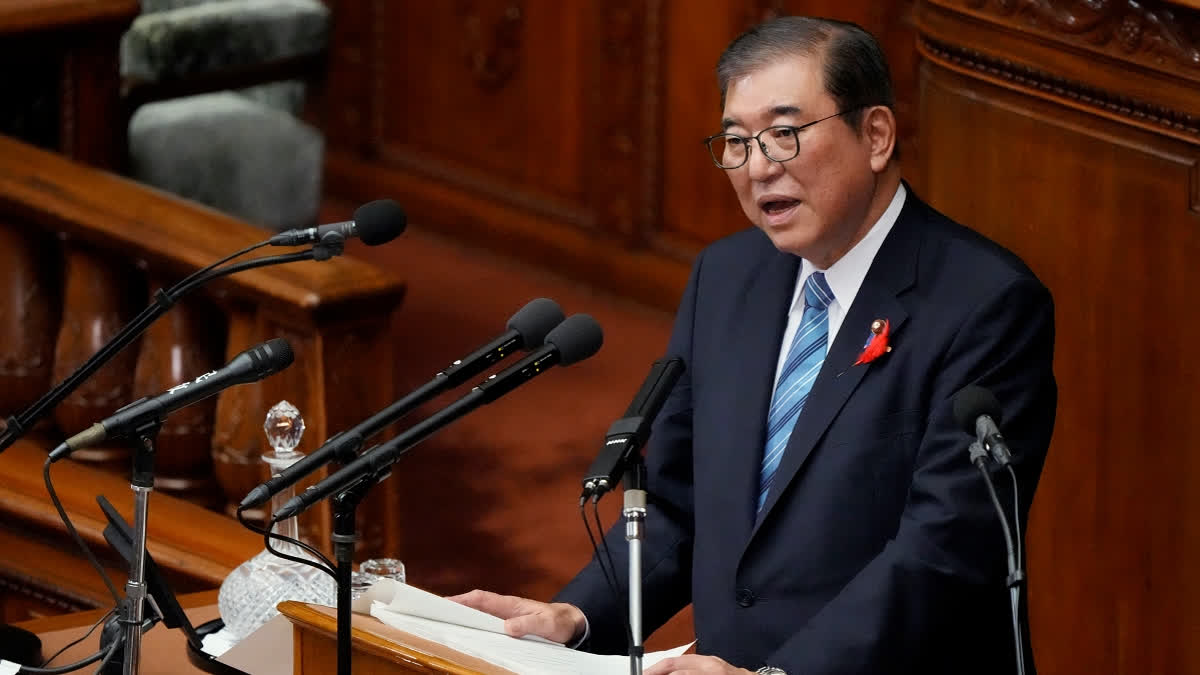Tokyo (Japan): Japan's new Prime Minister Shigeru Ishiba warned in his first policy speech Friday that "today's Ukraine could be tomorrow's East Asia" while also dubbing the country's low birth rate a "quiet emergency". "Many fear that today's Ukraine could be tomorrow's East Asia. Why did deterrence not work in Ukraine?" Ishiba told parliament.
"Combined with the situation in the Middle East, the international community is becoming increasingly divided and confrontational," the 67-year-old former defence minister said. Ishiba made no direct reference to China but his country's relations with Beijing have deteriorated in recent years as it asserts its military presence around disputed territories in the region.
Of particular concern is Taiwan. Beijing claims the democratic island as part of its territory and has never renounced the use of force to bring the self-ruled island under its control. Japan has also irked China with plans for a major increase in defence spending and by boosting security ties with the United States and its allies including the Philippines and South Korea.
In August, a Chinese military aircraft staged the first confirmed incursion by China into Japanese airspace, followed weeks later by a Japanese warship sailing through the Taiwan Strait for the first time. Ishiba has backed the creation of a regional military alliance along the lines of NATO, saying on Tuesday that the security environment in Asia was "the most severe since the end of World War II".
Falling population
Japan, like many developed countries, is facing a looming demographic crisis as its population ages and the birth rate stays stubbornly low. The country has the world's oldest population after tiny Monaco, according to the World Bank. Last year, its birth rate -- the average number of children a woman is expected to have in her life -- stood at 1.2, well below the 2.1 needed to maintain the population. On Friday, Ishiba called the birth rate situation a "quiet emergency", adding the government would promote measures to support families such as flexible working hours.
